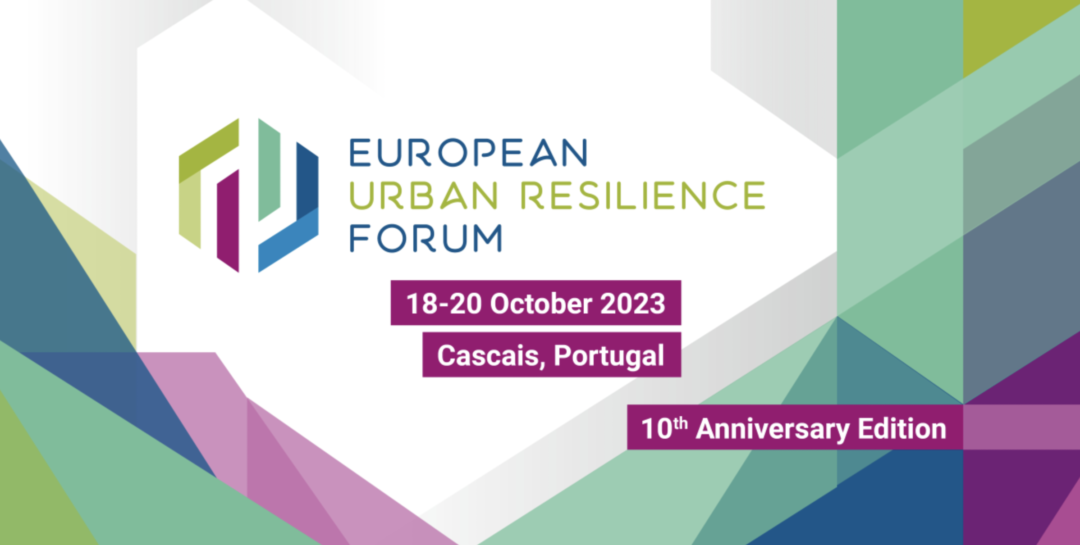10th European Urban Resilience Forum
The 10th anniversary of the European Urban Resilience Forum (EURESFO) took place on 18-20 October in Cascais, Portugal. Resilience-makers, Resilience innovators, Resilience providers, and Resilience supporters gathered in Cascais to define pathways for a resilient transformation across Europe and the globe.
 Since 2013, the European Urban Resilience Forum (EURESFO) has been a unique exchange platform for city representatives, experts and stakeholders from local and regional institutions to discuss strategies, initiatives and actions for adapting to climate change, managing disasters and building urban resilience. The event is a European initiative driven by ICLEI Local Governments for Sustainability and the European Environment Agency (EEA), and was co-organised with the City of Cascais for the 2023 edition. Previous partners, such as the Resilient Cities Network and the United Nations Office for Disaster Risk Reduction were supporting the programme development as well.
Since 2013, the European Urban Resilience Forum (EURESFO) has been a unique exchange platform for city representatives, experts and stakeholders from local and regional institutions to discuss strategies, initiatives and actions for adapting to climate change, managing disasters and building urban resilience. The event is a European initiative driven by ICLEI Local Governments for Sustainability and the European Environment Agency (EEA), and was co-organised with the City of Cascais for the 2023 edition. Previous partners, such as the Resilient Cities Network and the United Nations Office for Disaster Risk Reduction were supporting the programme development as well.
Over 350 participants of 44 countries, from city representatives, academia, community organisations, the European Commission to the United Nations, came together at the 2023 edition of the European Urban Resilience Forum in Cascais, Portugal to define pathways for a resilient transformation across Europe and the globe.
 Reflecting on progress made in the field of urban resilience over the past decade, when opening the Forum, Virginijus Sinkevičius, European Commissioner for the Environment, Oceans and Fisheries highlighted: “Resilience is a word that we hear more and more – the response that we need to a decade of crises…We never know what’s around the corner. But, with an integrated approach, we are better prepared.” Watch his full keynote address here.
Reflecting on progress made in the field of urban resilience over the past decade, when opening the Forum, Virginijus Sinkevičius, European Commissioner for the Environment, Oceans and Fisheries highlighted: “Resilience is a word that we hear more and more – the response that we need to a decade of crises…We never know what’s around the corner. But, with an integrated approach, we are better prepared.” Watch his full keynote address here.
The three day event featured 40+ sessions and workshops with over 100 speakers and moderators. They reflected on a changed climate and new extreme events that have become ever-present. The Forum discussed innovative governance models and funding schemes to deal with multi-hazard scenarios, more frequent climate extremes, and overlapping crises, diving deep into multi-level structures and opportunities for managing and funding adaptation projects and action.

Paulo Palha, the President of the European Federation of Green Roof and Living Wall Associations (EFB), actively participated in the event. During his engagement, Mr. Palha adeptly fostered networking opportunities, articulating the mission and endeavours of the EFB. Notably, he expounded on the organization’s current activities and highlighted the strides made in the ongoing ProGIreg project.
“ProGIreg” stands for ‘productive Green Infrastructure for post-industrial urban regeneration’: nature for renewal. The network of proGIreg partner organizations includes various actors such as cities, NGOs, research institutions and companies from eight different countries.
Through the involvement of the above-mentioned parties, proGIreg promotes close transdisciplinary cooperation between important key actors for an urban sustainable development at local and global level. In order to achieve a sustainable long-term effect from the realized local initiatives, proGIreg partners work on self-sustaining business models for the implemented nature-based solutions which are evaluated by a scientific assessment of the multiple resulting benefits for social, ecological and economic regeneration on site.

